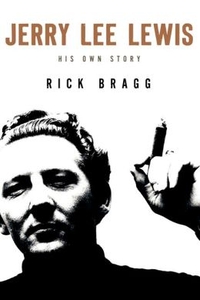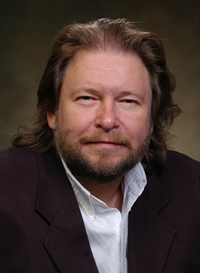Following up his bestselling memoir, All Over But the Shoutin'
, Pulitzer Prize–winning journalist Bragg again creates a soulful, poignant portrait of working-class Southern life by looking deep into his own family history. This new volume recounts the life of his maternal grand father, Charlie Bundrum, who died in 1958, one year before Rick was born. Lacking a grandfather, the New York Times
reporter sets out to build one "from dirt level, using half-forgotten sayings, half-remembered stories and a few yellowed, brittle, black-and-white photographs."His investigations in the Appalachian foothills along the Georgia-Alabama border turn up a beloved, larger-than-life rambler who inspired backwoods legend among contemporaries, undying devotion from his wife, Ava, and unabashed love and awe from his large extended family. Big-hearted but flawed, Bundrum was a man of contradiction. Genuinely devoted to his wife and children, he was a tenuous provider (a roofer by trade, he also cooked—and frequently tasted—his own moonshine) who fiercely defended his clan from trouble and hardship even as he occasionally brought it on them. He lived by a code of country justice that tolerated brawling with lawmen but disdained bullying, distinguished "good, solid biblical cursing" from mere "ugly talk," and forswore spitting in the presence of ladies.Bragg strives for an unvarnished portrait—and succeeds, mostly—balancing tremendous affection for his grandfather with the recognition that Bundrum, the last of his kind and a connection to a culture of backwoods self-sufficiency long dead in the South, deserves—and would demand—an honest rendering. "He is so much more precious smelling of hot cornbread and whiskey than milk and honey," Bragg writes. "The one thing I am dead sure of is that his ghost... would have haunted me forever if I had whitewashed him." A man like that, he concludes, "would, surely, want a legacy with some pepper on it."
Bragg delivers, with deep affection, fierce familial pride, and keen, vivid prose that's as sharp and bone-bright as a butcher knife. In this pungent paean to his grandfather, Bragg also chronicles a vanished South that—like the once-wild Coosa River Charlie liked to ply in homemade boats—is becoming too tamed to accommodate those who would carve out a proud if hardscrabble living on its margins. (Sept.)
Forecast: Knopf is pulling out all the stops for this; know they've got a winner: 200,000-copy first printing, 19-city author tour, and a nine-copy floor display including audio and large-print editions, and paperback copies of
All Over but the Shoutin'.



